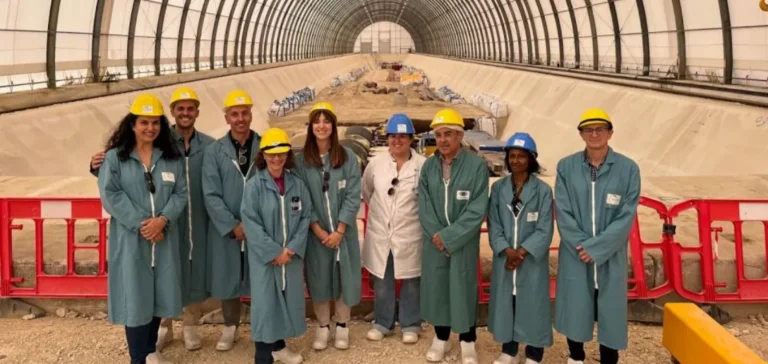The International Atomic Energy Agency (IAEA) has concluded that Spain has fully implemented all the recommendations and suggestions issued during the 2018 review of its radioactive waste management practices. This finding follows a five-day follow-up mission conducted by the ARTEMIS service (Integrated Review Service for Radioactive Waste and Spent Fuel Management, Decommissioning and Remediation), involving international experts.
Updated national plan and increased storage capacity
The mission particularly noted the approval of Spain’s seventh General Radioactive Waste Plan. This document outlines the national strategies for used fuel, special waste and high-level radioactive waste. Improvements were also recognised in the storage capacity for low and intermediate-level radioactive waste at the El Cabril facility, operated by Empresa Nacional de Residuos Radiactivos S.A. (ENRESA).
In addition, Spain has defined a new strategy for the interim storage of used fuel and high-level radioactive waste, ahead of the construction of a deep geological repository. A roadmap has been drawn up for this project, supported by a financing mechanism that is regularly reviewed.
Preserving expertise and funding research
The evaluation report also highlights the implementation of measures to retain technical know-how in the nuclear field, a point previously identified as critical. Funding allocations for research and development have been reassessed to ensure they support the step-by-step advancement of the geological repository programme.
Victor Marcos, Director General for Energy Planning and Coordination at the Ministry for the Ecological Transition and the Demographic Challenge, stated that the closure of the seven items identified in 2018 offers “a strong basis for future developments.”
National programme aligned with international standards
The IAEA team included experts from Australia, France, the Netherlands, Slovenia and the United Kingdom, along with four agency staff members. According to mission leader François Besnus, the progress achieved reflects “an effective response to the 2018 ARTEMIS mission findings”, highlighting the publication of the seventh national plan and the roadmap for the deep geological facility.
Spain currently operates seven nuclear reactors generating around 20% of its electricity. Three other plants have been shut down and are undergoing decommissioning. Most sites have interim used fuel storage facilities. The final report from the ARTEMIS mission will be delivered within three months.






















